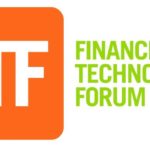Guest Contributor: Kristin Swenton Hochstein, Co-Chair of ISITC Regulatory Working Group and Americas Head of Entity Risk for Thomson Reuters Ask most people to think of M&M’s and they probably would recall something colorful and sweet. Ask someone close to FATCA (Foreign Account Tax Compliance Act) and they would have a slightly different perspective on
Back-Office
Webinar: Derivatives Processing on Legacy Technology: Fear factor or real factor?
Derivatives Processing on Legacy Technology: Fear factor or real factor? Are legacy investment management systems the bane of your derivatives processing? An increasing number of buy-side organizations are implementing sophisticated strategies that employ derivatives. However outdated systems across the front-to-back office have not kept pace with the increasingly broad and bespoke range of investment products.
Dodd-Frank
New Technology Helps Advisors Give the Right Financial Advice
Guest Contributor: Cheryl Nash, President, Investment Services from Fiserv Many investors have come to the realization that they may not meet their retirement and other financial goals on their own, and are reaching out to financial advisors for expert guidance. These investors still remain risk averse and are demanding personalized advice and transparency into their
Compliance
Whitepaper: What to do when (and before) SEC examiners arrive in your office
Are You Compliance-Ready? 12 Timely Takeaways for Preparing for the SEC’s 2013 Examination Priorities Click here to download Discover: – What the changing regulatory landscape means for you – What the SEC is focusing on in 2013 and beyond – How to perform a self-exam of your firm’s compliance readiness – Questions to ask yourself
Uncategorized
FTF News Summer/Fall 2013 Digital Issue
Back-Office
Replacing Legacy Systems: An Opportunity for Change to Drive Better Investment Performance
Guest Contributor: David Kubersky, SimCorp North American Managing Director We have long left behind typewriters, walkmans and VHS tapes, yet millions in assets are still managed on systems that existed before Windows 1.0. The inherent characteristics of legacy systems act as major detriments to a capital markets firm’s performance. Legacy systems utilize antiquated programming languages,
Financial Technologies Forum (FTF)
FTF News Endorses Fun & Games at the Sifma Show
Guest Contributor: Eugene Grygo, Editor, FTF News All seriousness aside, we at FTF News are doing our part to have fun at next week’s Sifma Tech show, June 18-19, in New York. The good times begin at our Sifma booth, No. 1301, where we have created a customized parody of a popular, old school electronic
Guest Blog
FATCA – The IGA Puzzle
Guest Contributor: Colin Camp, Managing Director – Products & Strategy at Dion Even though the final regulations have been published, the sheer volume of ‘noise’ around FATCA and the ‘will they, won’t they?’ stories regarding the signing of Inter-Governmental Agreements (IGAs) is creating a great deal of uncertainty in the market. This is added to,
Derivatives
Will the Futurization of Swaps Transform the Clearing Industry?
Guest Contributor: John Omahen, vice president of SunGard’s post trade derivatives solutions The dictionary defines the word “swap” as to change or interchange, to move, and even “to thrash,” a computer term meaning to move data into and out of the core rather than perform the useful computation. Regardless of which definition one chooses, each
Compliance
Back to Business with CLO 2.0
Guest Contributor: Mike Molaro, Managing Partner, NorthPoint Financial Some of what were perceived to be the riskiest securities of the pre-financial crisis are back. The Collateralized Loan Obligation (CLO) market indicators are pointing to a profitable resurgence and growing inventory for these instruments. CLOs are special purpose vehicles (SPVs) with securitization payments in the form of




